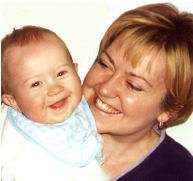Addictive Delinquency
John Leopold Weil, M.D.
...Adolescents who had been severely deprived of empathic care during infancy run a statistically greater chance of manifesting addictive delinquency.
A number of factors come to mind as instrumental in the formation of delinquent symptoms. The cultural, peer, and family customs and mores are a primary determining factor. If the children are rewarded by parents for delinquent acts, and if they gain the approval of peers for delinquent acts, delinquency will be more likely to be adopted as a supply line of pleasure. If children are born into organized crime and learn delinquency as a way of gaining pleasure, and/or if they learn to identify with a delinquent father who has been irresponsible to family or friends or society, delinquency can be learned as a way of life as much as a language is learned. This way of life is reinforced when parents fail to offer children consistent, helpful, and empathic controls of delinquent behaviour.
Another factor related to the occurrence of delinquency is an onslaught of abusive beatings during infancy and childhood. Presumably several beatings prime so much hate and antagonism toward caregivers that the activated hate and defiance become discharged indiscriminately upon other human beings. The child, in the active role, acts out upon others the harm which he or she helplessly experienced as the passive recipient of cruel punishments from parents. Clinical cases observed by Weil suggest that the earlier in life sadistic beatings are experienced, the more diffuse and exaggerated and deeply ingrained becomes the destructively delinquent behaviour which subsequently appears in the individual's life.
Additionally, an even more widespread early contribution to the establishment of symptoms which can be recognized as forming the first steps in the direction of addictive delinquency derives from chronic deprivation of empathic care during infancy. Among these symptoms are an "emptiness of pleasure"; a compensatory "greed for pleasure"; a need to "manipulate the environment"; "frozen empathy"; and "a readiness to turn away from human care." When recordings of such symptoms associated with chronic deprivation of empathic care during infancy are triggered later in life, there occurs an opportunity for several prodelinquency forces to reinforce one another. For example, if an adolescent with a history of early deprivation of empathic care is emotionally cold, is greedy for pleasure, and is ready to treat others as inanimate, then a possible compensatory supply line for restoring states of pleasure is offered by the lure of stealing material goods. Unfortunately, if such an individual is empathically frozen and cold, then making others unhappy by stealing will elicit little resonant distress or concern. In this regard, Sroufe refers to "negative empathy" among delinquent children. Sroufe writes of one behavioural example illustrating the exquisite reversal of affect and negative empathy of some of these children. When one child, NT, complained of a stomach-ache, then LJ, a delinquent child, smiled and poked her in the stomach. NT cried in pain and said "that hurts", whereupon LJ smiled and poked her again. Such individuals find it easy to identify with groups of people whose compensatory supply lines of pleasure involve feelings of ego power, mastery, and control by means of hurting, attacking, destroying, and killing other human beings.
In any case, once delinquency is selected as a compensatory supply line to restore states of pleasure among individuals who had been chronically deprived of empathic care during infancy, then an addictive aspect of the delinquency, like the addictive aspects of alcoholism or of compulsive sexuality, can be understood in terms of the driven need to keep pressing "pleasure buttons" to compensate for triggered recordings of chronic deprivation and emptiness. In this sense, the psychology of the addictive delinquent is comparable to that of the individual who indulges in shopping binges, borrowing binges, and gambling binges as attempts to compensate for triggered recordings of chronic deprivation and emptiness by means of plans and great expectations of amassing material goods. In the words of Brandt Steele:
(These children) have a persistent insatiable longing to find something which will alleviate their tragic...hunger for love and being cared for...What we call delinquency can be used to try to solve these problems albeit in an antisocial way...In taking adequate histories of inmates of a state penitentiary (it was found that) nearly every inmate was a victim of significant neglect and physical abuse as a child.
The addictive quality of delinquent behaviour associated with a history of early deprivation is suggested by the common observation that for a large number of such deprived individuals, institutionalization and/or psychotherapy fail to correct delinquent symptoms. A large proportion of delinquents and criminals are not amenable to therapy just as most addictions are not amenable to individual therapy
Reprinted from chapter 8:Predictions, pp 152-155 of the book Early Deprivation of Empathic Care by John Leopold Weil M.D., Judge Baker Children's Center, Harvard Medical School. International Universities Press, Madison, Connecticut 1992 ISBN 0-8236-1525-1.
